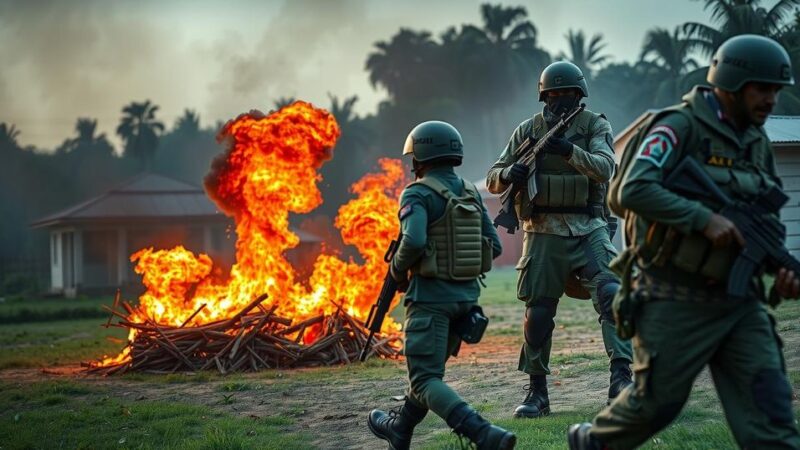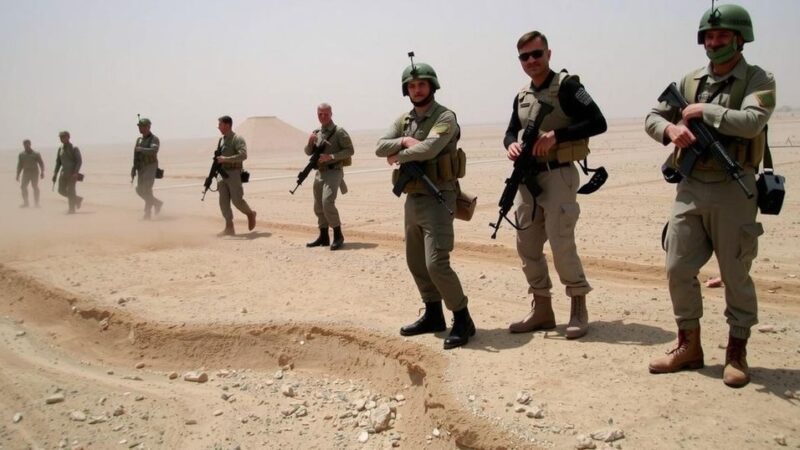The demise of Assad has crippled Hezbollah’s operational capabilities in Lebanon, eroding its power and influence due to lost supply routes and altered regional dynamics. Analysts project significant consequences for Lebanon and Iran, while Israel views this as a strategic victory in undermining Hezbollah. The political landscape in Lebanon is shifting as calls for disarmament grow stronger and public dissent against Hezbollah intensifies.
The recent toppling of former Syrian President Bashar Assad has dealt a significant blow to Hezbollah, a militant group in Lebanon that has historically depended on Assad’s support. With Assad’s departure, Hezbollah’s operational capacity has been compromised as its crucial supply routes for weapons and support from Iran have been severely restricted. Analysts suggest that this development poses serious implications not only for Lebanon but also for Iran, which relied on Hezbollah to project its influence in the region. The diminishing strength of Hezbollah represents a concerning shift in the balance of power, particularly given that it has traditionally been a dominant political force in Lebanon.
Hezbollah’s influence has waned following the Israeli bombardments and internal turmoil within the group, significantly impacting its previous military stature. The loss of Assad as a supportive ally eliminated a vital conduit for weapon shipments and strategic coordination. This has raised concerns among Hezbollah leaders, who nevertheless maintain a defiant public stance regarding their resilience. The changing dynamics have also prompted calls within Lebanon to disarm the group and reestablish control by the Lebanese military, especially along the southern border adjacent to Israel.
The fall of Assad has fostered a new political landscape in Lebanon, where even previously supportive factions are reconsidering their affiliation with Hezbollah. The changing narrative concerning Hezbollah’s actions, particularly its recent use of military force, has contributed to public dissent against the organization, challenging its long-standing political dominance. Due to the loss of vital resources and shifts in public sentiment, Hezbollah may need to recalibrate its approach and prioritize domestic governance over regional ambitions.
This alteration in the geopolitical scene is significant for Israel, which has long sought to undermine Iran’s military infrastructure in the region. The loss of Assad is viewed as a critical victory against Hezbollah and Iran by Israeli leadership. Prime Minister Benjamin Netanyahu praised the developments as indicative of Israel’s active role in disrupting Iranian influence. Although the situation remains complex and precarious, the erosion of Hezbollah’s power signifies a pivotal change in Middle Eastern geopolitics, affecting not only Lebanon but extending to broader regional relationships.
The relationship between Hezbollah and Syria has historically been pivotal for both entities. Hezbollah, established in the early 1980s with Iranian support, relied on Syria for logistical and military backing. The Assad regime facilitated Hezbollah’s growth through access to Iranian weapons and training camps, making Syria an essential partner. Assad’s downfall is particularly consequential given that Hezbollah had previously dispatched thousands of fighters to assist him during the Syrian civil war that erupted in 2011. With Assad’s exit, Hezbollah faces unprecedented challenges to its operational capabilities as it loses crucial supply lines and political support.
The fall of Bashar Assad has precipitated a profound transformation in the dynamics of power in Lebanon and the broader Middle East. Hezbollah, once a formidable political and military force, is experiencing a critical reduction in its influence and resources. This situation leads to increased calls for the group to disarm and refocus its objectives internally rather than externally. As regional hostilities continue to evolve, the consequences of Assad’s removal will reverberate throughout the region, impacting the strategic calculations of both allies and adversaries alike, particularly Iran and Israel.
Original Source: abcnews.go.com






